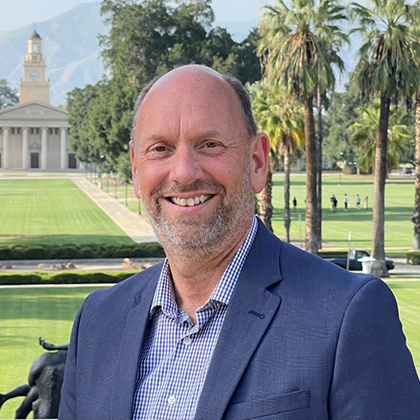University of Redlands Emergency Alert System
Alert Received: . For more information, visit: https://www.redlands.edu/alert/
University of Redlands
Professional Bio:
 Dr. Greg Thorson serves as both the Director of the Public Policy program and as the Ken and Lynn Hall Endowed Chair of Public Policy at the University of Redlands. He received his Ph.D. from the University of California at Riverside (1995). Professor Thorson teaches courses on education policy, health care policy, the policy process, quantitative methods, and other courses in American politics.
Dr. Greg Thorson serves as both the Director of the Public Policy program and as the Ken and Lynn Hall Endowed Chair of Public Policy at the University of Redlands. He received his Ph.D. from the University of California at Riverside (1995). Professor Thorson teaches courses on education policy, health care policy, the policy process, quantitative methods, and other courses in American politics.
Professor Thorson’s research focuses on education policy. His current work examines the effects of economic inequality on international test scores, the effects that No Child Left Behind sanctions have had on California schools, the effectiveness of charter schools, and the changes in American public opinion towards K-12 schools.
His research has been published in some of the most prestigious journals in the field, including the Journal of Politics, Political Research Quarterly, Congress and the Presidency, The International Journal of Forecasting, and Educational Leadership. Professor Thorson has co-authored more than a dozen published papers with his undergraduate students.
Professor Thorson has also worked extensively with business groups, nonprofits, and local governments. He has worked with groups of small employers to form a health care purchasing alliance and assisted local government officials in a variety of planning initiatives. He has testified in state legislatures six times on a variety of health care and education policy initiatives.
Professor Thorson joined the University of Redlands faculty in 2008.
Project Summary:
In this project, I will use my introductory course in American Politics (POLI 111) to examine some basic questions about the efficacy of flipping the classroom. Specifically, I'm interested in knowing a) what students believe are the advantages and disadvantages of flipping the classroom, and b) whether students prefer the flipped classroom more or less than traditional teaching methods.
I intend to divide the class into three equal sections. I will administer the first third of my class in a traditional manner. The class will meet twice each week for 80 minutes per session. During this first section, I will teach students about the origins of our constitution and federalism. The sessions typically involve a mix of lecture and discussion.
During the second third of the class, I will flip the classroom to teach about civil liberties, civil rights, and Congress. During these four weeks, I will reduce the classroom meetings to just one 80 minute session per week and provide all of the lecture content via streaming video on the course Moodle site. The weekly face-to-face session will be limited to interactive reviews of the material, discussions and critiques, and discussion of current events. No new lecture content will be introduced in class.
Finally, for the final third of the class, I will return to the format of meeting twice per week to teach about the presidency and the judiciary using a combination of traditional lecture and discussion activities.
At the completion of the course, I will administer a specially designed supplemental teaching evaluation to determine students attitudes about flipping the course vs. traditional teaching methods.
I hope to write up the results of this field experiment and present them at an upcoming Educause meeting.